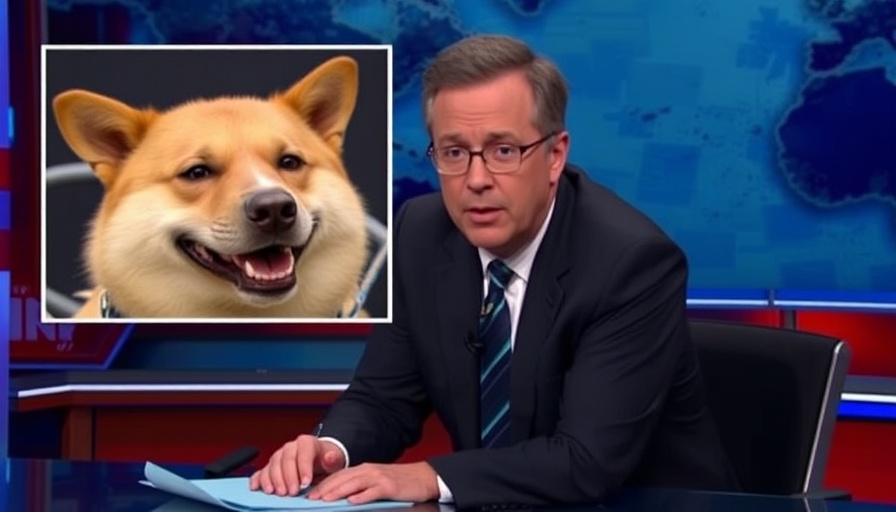
Jon Stewart Challenges Doge: Where Will the Cuts Really Come From?
In a striking episode on The Daily Show, Jon Stewart took aim at Elon Musk's controversial initiative to streamline government operations under the newly minted organization dubbed the Department of Government Efficiency (Doge). With an audacity that has become synonymous with both Stewart and Musk, the late-night host described the mass firings of civil servants as 'animated by malice', highlighting the potential perils of drastically cutting the workforce while claiming to enhance efficiency.
Understanding Doge
Stewart's analysis centers on the heart of Doge's strategy: a swift reduction of the federal workforce, which has reportedly seen over 38,000 employees dismissed, many of whom are seasoned veterans. The juxtaposition of efficiency versus the sacrifice of public service raises critical questions, especially as Musk's promises of a financial boon from these cuts remain unsubstantiated. Independent evaluations reveal that the anticipated savings resulting from layoffs may be more illusory than real.
The Heart of the Matter
During his segment, Stewart drew attention to the shocking reality that significant taxpayer funds are currently funneled towards dubious corporate subsidies instead of being allocated for essential services. He mentioned the $3 billion in subsidies to oil and gas companies that are already reaping massive profits and highlighted the carried interest tax loophole exploited by hedge funds, which costs taxpayers an estimated $1.3 billion annually. 'This is where the real money is,' Stewart asserted, suggesting that a more logical approach would be to tackle these entrenched inefficiencies first.
Echoing the Concerns of Late-Night Peers
Esteemed late-night hosts echoed Stewart's sentiments, providing a chorus of criticism towards the Doge initiative. Stephen Colbert quipped that federal employees were 'in the clutches of a heartless billionaire' and likened Musk's mass email to amused chaos, revealing the absurdity and urgency behind Musk's demands for accountability.
Jimmy Kimmel added a layer of indignation, lamenting the cold dismissal of long-serving employees as the federal government continues to experience unprecedented disarray. His poignant remarks pointed to a growing normalization of heartlessness in corporate governance, which may just be the tip of the iceberg.
Public Reaction and Cultural Implications
The public's response to this orchestration of mass layoffs has been swift and multifaceted. Many citizens find themselves divided along partisan lines, with some supporting the initiative as a necessary overhaul, while others deem it reckless and damaging to public service. This cultural schism is particularly pronounced among worker advocacy groups, many of whom are mobilizing protests against the perceived injustices handed down by the Doge strategy.
What Lies Ahead for Federal Employees?
With legal challenges beginning to mount against the actions of Doge, the situation remains fluid. Court battles initiated by affected employees and various advocacy groups signal an uncertain future for Musk's initiative. As criticism broadens, and individual stories emerge, it is increasingly essential to consider how this program will not only redefine the structure of government work but also the implications it has for democracy itself.
A Call to Examine the Bigger Picture
In reflecting on the current turbulence ushered in by the Doge initiative, it's clear that discussions about government efficiency need to engage with the moral obligations towards its workforce and the communities they serve. As we navigate this bold and contentious terrain, it will serve us well to ask: Which entities should we really be targeting for budget optimization?
Stewart's powerful remarks certainly provide food for thought; as tensions rise and reorganization efforts continue, the importance of aligning economic efficiencies with ethical governance remains crucial. The conversation about what government should prioritize in these challenging times is just beginning, but the stakes are undeniably high.
 Add Row
Add Row  Add
Add 




Write A Comment